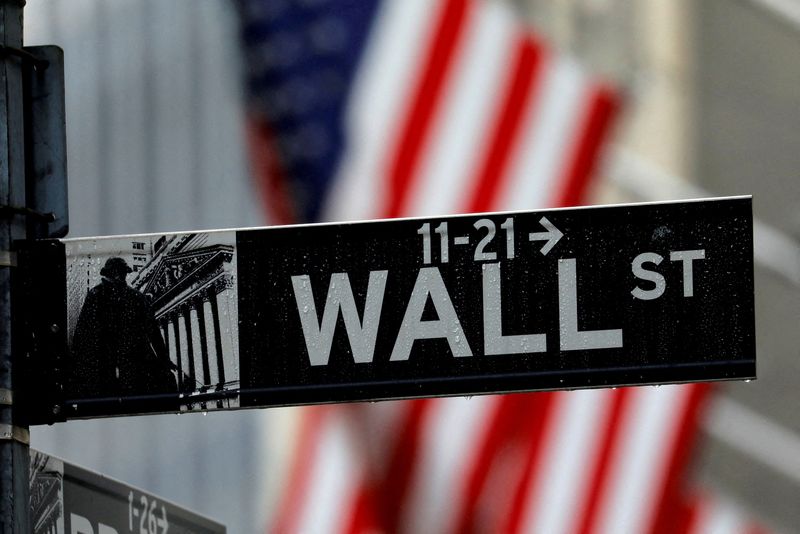By Peter Nurse
Investing.com -- U.S. stocks are seen opening marginally higher Friday, continuing the previous session's huge turnaround ahead of a slew of big bank earnings and the latest retail sales release.
At 07:00 ET (11:00 GMT), the Dow Futures contract was up 165 points or 0.6%, S&P 500 Futures traded 14 points or 0.4% higher, and Nasdaq 100 Futures climbed 20 points or 0.2%.
The main equity indices closed sharply higher Thursday after falling early in the day on the heels of a report showing inflation ran hotter than expected in September, suggesting the Federal Reserve is likely to continue with its aggressive rate-hiking plan.
The blue-chip Dow Jones Industrial Average ended more than 800 points or 2.8% higher, while the broad-based S&P 500 gained 2.6%, and the tech-heavy Nasdaq Composite ended 2.2% higher.
The third quarter earnings season continues Friday, with a number of the country’s major banks due. There are hopes a solid quarter can boost sentiment, rather like it did in the previous reporting period.
JPMorgan Chase (NYSE:JPM), Wells Fargo (NYSE:WFC), Morgan Stanley (NYSE:MS), and Citigroup (NYSE:C) are all scheduled to report before the bell, and these results will give investors a sense for what rising interest rates and inflation are doing to the nation's biggest lenders.
UnitedHealth (NYSE:UNH) is also expected to report third quarter numbers, with the health insurer's costs, particularly those related to COVID-19, squarely in focus.
Beyond Meat (NASDAQ:BYND) stock fell sharply premarket after the faux-meat maker slashed its annual revenue forecast due to rising inflation and said it was cutting about 200 jobs or 19% of its total workforce.
U.S. retail sales data are due at 08:30 ET (12:30 GMT) and should provide clues on how the aggressive Fed rate hikes are impacting consumer demand. The latest consumer sentiment figures from the University of Michigan are also due at 10:00 ET (14:00 GMT).
Oil prices weakened Friday and look set to post a weekly loss after a spike in China's COVID-19 cases and a bigger-than-expected build in U.S. crude inventories increased concerns over global demand.
COVID cases persist in China, the world's largest importer, including in Shanghai, the country's financial capital, threatening new lockdowns, which could severely crimp demand.
Additionally, official data from the U.S. Energy Information Administration showed that crude inventories grew by 9.9 million barrels last week, much more than expected.
By 07:00 ET (11:00 GMT), U.S. crude futures traded 1.1% lower at $88.16 a barrel, while the Brent contract traded 0.9% lower at $93.73. Both contracts are down over 4% this week.
Additionally, gold futures fell 0.9% to $1,661.70/oz, while EUR/USD traded 0.3% lower at 0.9741.
